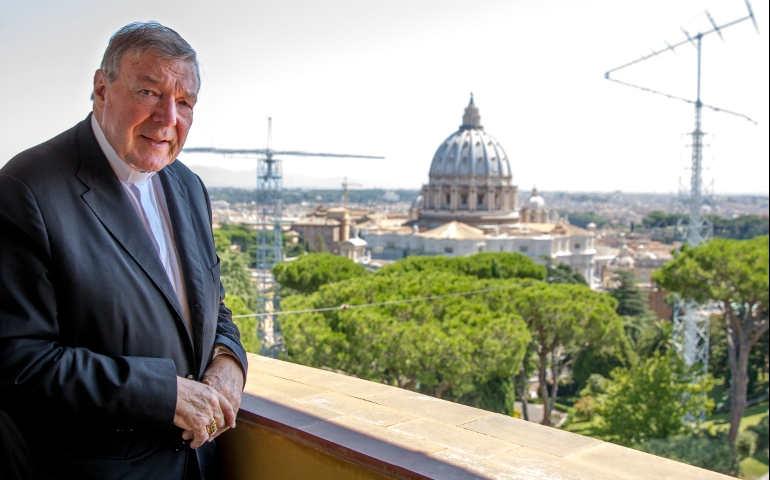|
'A church for the poor should not be poorly managed'
By Dennis Coday
“Vatican reformers have discovered hundreds of millions of euros that did not appear on the Holy See’s balance sheet,” says Cardinal George Pell, the pugnacious Australian conservative Pope Francis chose earlier this year to put the Vatican’s finances in order. Arcane accounting practices and fiercely guarded departmental independence have kept “some hundreds of millions of euros … tucked away in particular sectional accounts,” Pell writes in current issue of The Catholic Herald, a weekly publication from the United Kingdom. The Vatican’s finances are much healthier than many had thought, Pell writes. “It is important to point out that the Vatican is not broke. Apart from the pension fund, which needs to be strengthened for the demands on it in 15 or 20 years, the Holy See is paying its way, while possessing substantial assets and investments.” In February Pope Francis created a new Council of the Economy to monitor all economic and administrative activities of the Holy See. The make up of the council is unique: instead of being dominated by Italian prelates, seven of the council’s 15 members are laypeople -- experts in finance -- and they come from a variety of nationalities. To carry out the guidelines of the council and provide the administrative oversight, Francis also created the Secretariat of the Economy and appointed as Pell its president. As part of the broader administrative reform, in November, Pell released a 45-page manual, "Financial Management Policies,” that spells out new rules for budgeting and financial reporting that all Vatican offices must follow beginning Jan. 1, 2015. The intent of the manual is to modernize and internationalize the Vatican bureaucracy while reducing its overall size, improving a "checks and balances" system to increase transparency and increasing oversight by laypeople. Writing in the Herald, Pell says, “Donors expect their gifts to be handled efficiently and honestly, so that the best returns are achieved to finance the works of the Church, especially those aimed at preaching the Gospel and helping the poor escape from poverty. A Church for the poor should not be poorly managed.” Earlier, Catholic News Service published an extended interview with Pell that is well with the read. Pope's finance chief talks Vatican reform. In the CNS interview, Pell says Pope Francis wants a "poor church for the poor," but that "doesn't necessarily mean a church with empty coffers, and it certainly doesn't mean a church that is sloppy or inefficient or open to being robbed."
|
.
Any original material on these pages is copyright © BishopAccountability.org 2004. Reproduce freely with attribution.
